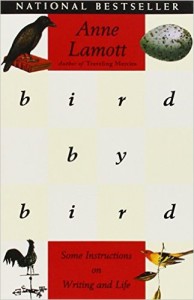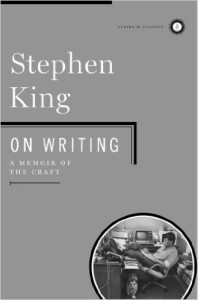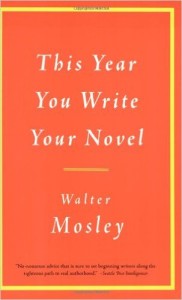When Life Sends You Muck: Tips for Writing the Dissertation
Earlier this summer, AAIHS founder Chris Cameron wrote an excellent piece on finishing the MA/PhD in four years. Since it is the beginning of the academic year, I decided to offer my own advice for surviving the final phases of the doctoral process. I am aware that my own personal road to the dissertation was “the one less traveled by.” This simple fact may make me an outlier on the grid of PhD candidates, so my advice may be most beneficial to my fellow outliers. The single most critical piece of advice I can offer is: IMPROVISE.
By improvise, I mean to create solutions with the things and environment around you. The nature of our field means that frequently we seek perfection. We follow the perfect schedule, have the perfect tools; have the perfect plan. However, in the quest for perfection we can forget that life continues to exist, and inevitably mucks things up. For instance, during the week of my comprehensive exams I came down with a major case of the flu. When the muck hits the fan, you have two choices: be immobilized by the fact that things have gone awry, or improvise a solution.
Tips for Improvising a solution
- Remember “The best dissertation is a done dissertation”
The middle of a muckfest is not the time to worry about perfection, just get the darn thing done. Your advisor is there to help make it something passable. Besides, the person who received a dissertation award and the person who completed the program without any fanfare are both called Doctor.
- Create your own quirky writing methods
I quickly realized that I am a kinesthetic writer, meaning that the act of old fashion pen-and-paper writing would stimulate my thoughts. I would spend 30 minutes to an hour handwriting my ideas until I jumped over to the computer. Later, I would go back and type what I had handwritten.
On the more quirky side, I used various sizes of paper as well as markers and colored pencils to organize my ideas. I like to physically engage with my text, so everything from 11 x 17 sheets of paper to index cards were not shielded from my tactics. The larger sheets of paper had the more general ideas while the smaller sheets of paper had the details. I would then organize and re-arrange the papers to work out my argument.
Most importantly work during the time of day when you are most productive. James Baldwin was known for partying with his friends, and then writing at 1 am or 2 am.
DO WHAT WORKS FOR YOU!
- Seek inspiration from alternative sources
Writing is an arduous task; even the most accomplished writers have acknowledged that they have had to wrestle the muse to sit down beside them. 3 books that helped me focus my approach to writing were:
Anne Lamott, Bird by Bird: Some Instructions on Writing and Life
Stephen King, On Writing: A Memoir of the Craft
Walter Mosely, This Year You Write Your Novel
The advice from fiction writers tends to speak more to the craft of writing, and encouraged me to find my creative voice in the midst of all of the historical facts.
- Hit the pause button
During the course of dissertation writing, you can easily feel overwhelmed by the task. The muck can begin trickling in, and quickly rise from your ankles to knees to your neck. The isolating nature of dissertation writing can magnify these feelings, and will quickly snowball into issues of self-doubt, depression, or anxiety. Before you crawl through that rabbit hole, hit the pause button and do a self-care check list. When was the last time you slept? When was the last time you ate? Have you drunk enough water? When was the last time you showered? (Don’t judge! I know plenty of people who would rather sit in their funk than lose a major train of thought.)[1] You will be surprised at how much better you will feel if you take care of these basic needs.
On more than one occasion I felt like I was hitting my head against a brick wall. There were times when I tried to power through the feeling, and there were times when I hit the pause button. Inevitably, I was more productive after walking away, even if it was for 5 minutes.
If you find that you cannot shake those overwhelming feelings, get professional help. Many universities have dissertation support groups, and counselors who specialize in helping doctoral students. Many universities have help-lines that are manned by certified counselors and psychologists. If you find yourself on a precipice of your sanity in the dark hours of twilight, make the call. There is no judgment, and your privacy is protected by HIPPA laws.
- Remember your schedule may be different
Your dissertation has to be viewed by many sets of eyes, before you are allowed to defend. You have to give your committee time to do this. Work hard so that you can finish on your desired timeline, but don’t be surprised if you have to finish the following semester due to university deadlines. Finishing later than your colleagues and friends is not an indictment of your personality or intelligence, but a reflection of your own reality. Run your own race.
- Remember that some things are out of your control
There are things you cannot control during this process: how quickly your advisor reads your chapters, how quickly your committee responds to your requests, university deadlines. Place your emphasis on the things you can control like submitting your dissertation in a timely fashion. Life happens to your advisor and professors as well. They may take a while in responding to your drafts, but keep working on the dissertation as you wait. Remember your goal is a DONE DISSERTATION!
Improvisation means accepting the limits around you while using all the available resources to finish your journey. Hopefully these tips will help you navigate the journey from Padawan to Jedi.
Good luck! May the Force be with you!
[1] Stewing in your own funk should be done at home. If you need to venture into the real world, shower first.
Copyright © AAIHS. May not be reprinted without permission.



